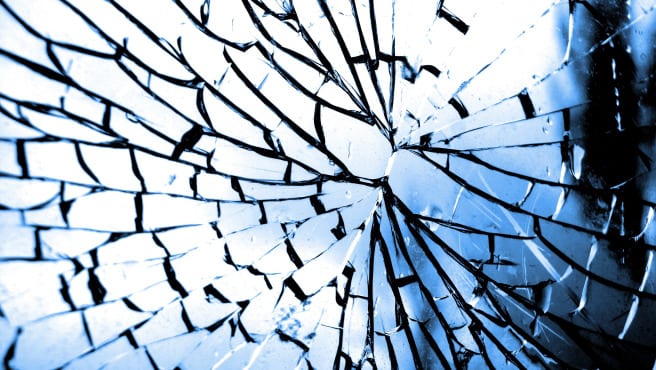Several years ago, before I was diagnosed, during a particularly difficult bout of psychosis I believed I was a prophet receiving messages from God. I went days at a time without sleep, diligently documenting everything I heard, scribbling frantically and filling up journal after journal with divine whispers. They were strange, grandiose, and commanding messages. I felt what I was experiencing was such truth that I spent all of my energy focused on my mission.
As I descended further into mania I began to share the messages with some of the intended recipients. Most did not take the information kindly. I destroyed my relationships with many people during that time. But, it was worth it to me because I thought I was doing what I was meant to do. I didn’t realize I was thinking irrationally. I didn’t question my hallucinations. Mania cost me valuable relationships that I was never able to recover.
During other manic episodes I’ve blown through thousands of dollars, buying things I didn’t really need. Mounds of clothing that still have the tags on them. Books. Far too many books, most of which I’ve never got around to reading. Then there were more lavish purchases, those that left me broken financially and scrambling to get by.
I even struggled to stay put physically. I would compulsively move residence from location to location, thinking this new place, this new town, would make me happy and I’d want to stay. But once mania came back around – though I didn’t know that was what was happening yet – I was in the same position, packing up my belongings and moving yet again.
There are other instances of poor choices and behaviors that I’ve made prior to diagnosis (and some after), but I think the picture is clear: mania can cause a world of damage, damage that is difficult to recover from.
We often discuss the darkness and destruction of depression, and it can be difficult to come out of that bleak place, but what of mania – the other end of the bipolar mood spectrum? It can be just as dark and destructive. When I consider my experiences, mania has caused more lasting damage than depression in my life. Everyone’s experiences will vary, of course, but that is mine. I’ve started businesses only to have them fall through, or taken on too many projects that I could not sustain once the manic energy fades. Then I am left standing with my life crumbling in my hands, unsure of what to do with myself and the aftermath of the disasters I’ve accumulated during an episode.
How do you pick up the pieces and reassemble your life after a manic episode? How do you cope with the damage incurred from the impulsivity and irrational thinking that are often byproducts of the disease?
There are no easy answers to these questions, no formulaic solution. It is difficult to stand in the aftermath of mania, to accept responsibility for your actions and deal with the consequences. For years I hid from them, while I secretly felt their weight, beating myself up and saying I was a bad person. But I was sick. I just didn’t know it yet.
That is not to say I am exempt from the consequences, or that I do not accept responsibility. I do. I’ve obsessed and cried and struggled under the weight of those burdens. The problem is, for the longest time I wasn’t coming out of the other side.
Now that I know I live with bipolar disorder things are different. I have a responsibility to do all I can to stay well. It may not always keep me stable, but it keeps me grounded.
At some point we have to release the burdens. We have to let it all go and move on. And we have to extend ourselves some grace. After all, those choices and decisions were not made out of rational thinking, but out of sickness.
So when mania comes and causes damage these days, I assess the damage, pay the consequences, and move on. I have to. I have to keep going and let go of the past. I learn from it, or at least I try to, and I look to the future instead of keeping my eyes fixed behind.
Read more from Charlie on her personal blogs, Decoding Bipolar and Accepting ADHD. She has also written for The Mighty and New Life Outlook ADHD.


